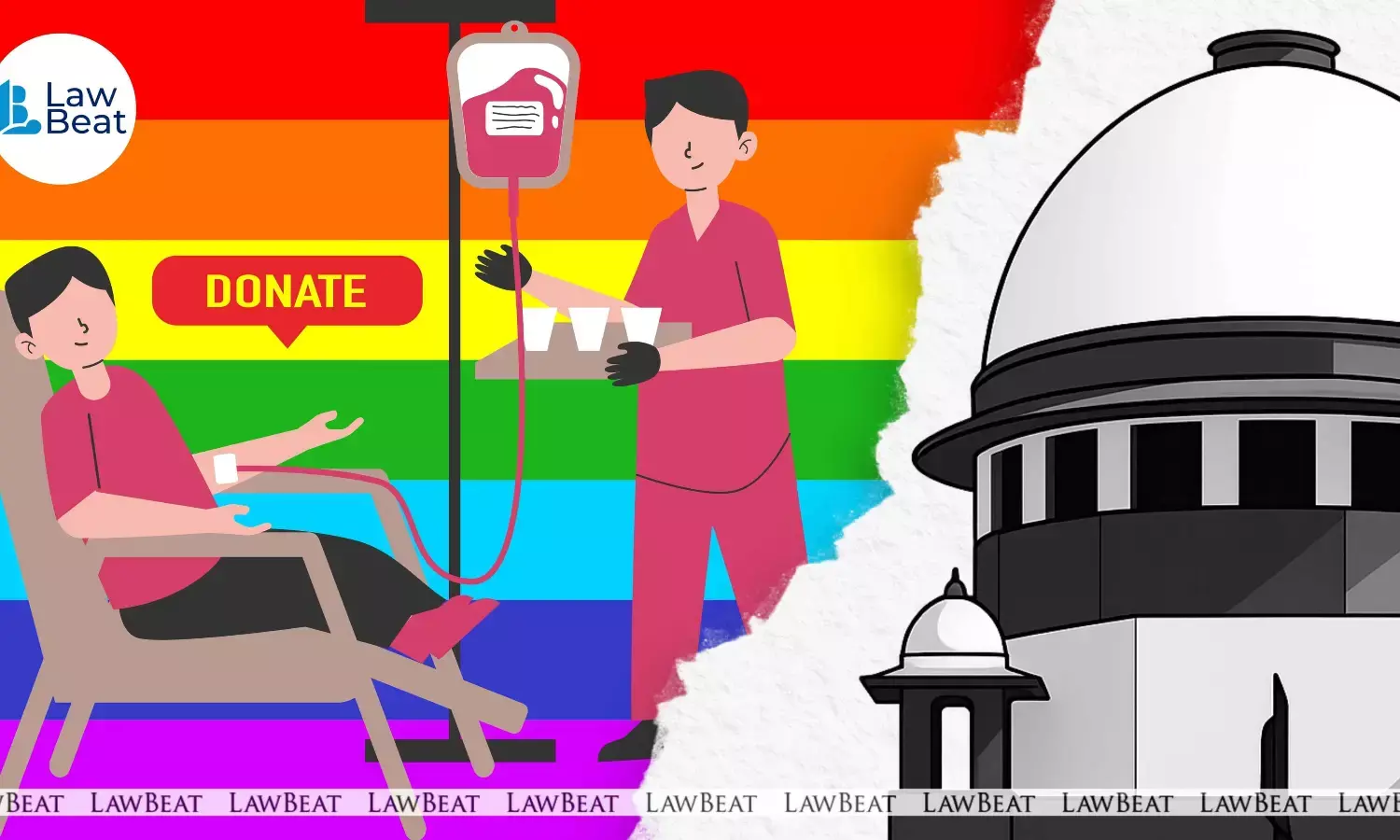“Are We Deepening Stigma?”: Supreme Court Questions Blanket Ban On Blood Donation By Transgender Persons, Gay Men & Sex Workers

The Supreme Court on Wednesday heard a batch of petitions challenging the constitutional validity of a blanket prohibition on blood donations by transgender persons, gay men, sex workers, and others designated as “high-risk” groups under current blood donation guidelines.
The Bench of Justice Surya Kant and Justice NK Singh took note of concerns surrounding discrimination, stigma, and the scientific rationale behind such exclusions, while urging the Union Government to reconsider its approach without compromising public health standards.
Appearing for the Centre, Additional Solicitor General (ASG) Aishwarya Bhati defended the restrictions, asserting that the guidelines were framed by medical experts of the National Blood Transfusion Council based on “risk viability.”
“This is not a matter of individual rights, but one of public health,” she submitted, adding, “There is no absolute or enforceable right to donate blood. The blood donated goes into public banks, and guidelines are aimed at ensuring a safe blood supply.”
She further contended that while petitioners referred to international practices, including those in European nations where such groups are not categorised as high-risk, “India has its own realities, including limitations in testing infrastructure.”
However, the Bench posed several pointed questions about the logic and fairness of the current policy.
Justice Surya Kant queried, “What if a patient is informed of the risk and still consents to receive such blood?”
When the ASG clarified that such discretion might apply in one-to-one or familial donations, the Court urged the government to consider a framework that ensures safety without institutionalising discrimination.
Justice NK Singh raised deeper concerns: “Are we branding all transgender persons as high-risk? Are we then indirectly stigmatizing these communities?” He warned against presumptions not backed by medical evidence, remarking, “Even so-called ‘normal’ individuals engage in high-risk behaviour. Why single out entire communities?”
When ASG Bhati explained that the guidelines simply reflected expert medical opinion, Justice Singh countered, “Aren’t we creating a segregated group? This only deepens stigma, biases, and societal prejudices.”
Justice Kant concluded by advising the Centre to engage with medical experts and explore solutions that uphold both safety and dignity. “This is best addressed through expert consultation. Please find a way forward where the community is not stigmatized, while all medical precautions remain intact.”
The case will be heard next on August 13.
About the PIL
On March 6, 2021, the Supreme Court had issued notice in the plea filed by Thangjam Santa Singh challenging Constitutional validity of Guidelines on Blood Donor Selection and Blood Donor Referral, 2017 passed by National Blood Transfusion Council and the National Aids Control Organization. The Bench had sought response of the government and further added that since the matter requires medical expertise to determine the grounds taken in the plea, no direct orders can be passed.
Challenge has been sought against clauses 12 and 51 of the general criteria under blood donor selection of the impugned guidelines, to the extent that it permanently defers transgender persons, men having sex with men and female sex workers, from donating blood and further considering them at high-risk category of being HIV/AIDS infected.
The petitioner contends that the exclusion of transgender persons, men having sex with men and female sex workers from being blood donors and also permanently prohibiting them from donating blood solely on the basis of their gender identity/sexual orientation is completely arbitrary, unreasonable, discriminatory and unscientific.
“In fact all blood units that are collected from donors are tested for infectious diseases including Hepatitis B, Hepatitis C, HIV/AIDS and hence permanently excluding them from donating blood and categorising them as high-risk only on the basis of their gender identity and sexual orientation is violative of their right to be treated equally as other blood donors”, the plea states.
Petitioners further contend that the guidelines solely rests on “negative stereotypes” amounting to discrimination under Article 14 and 15 of the Constitution.
Case Title: Thangjam Santa Singh v. Union of India & other connected matters [W.P.(C) No. 275/2021; Diary No. 4325/2021]
